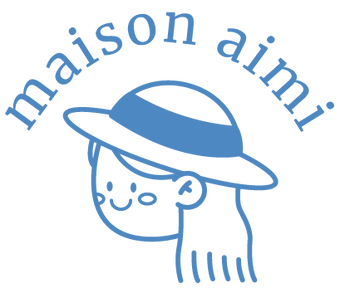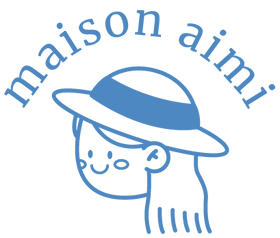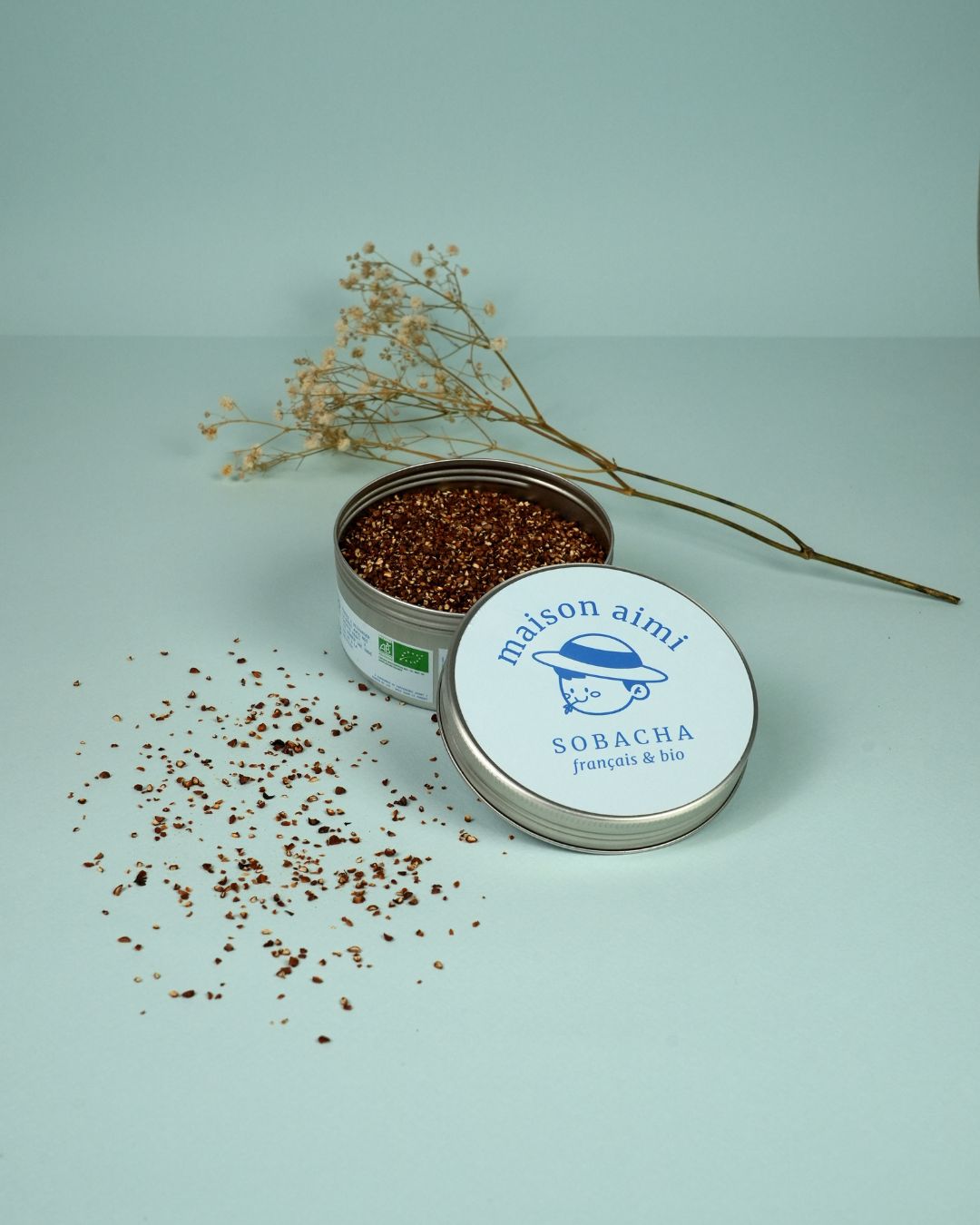Coffee Alternatives: 7 Caffeine-Free Drinks
For health reasons or to get back to sleep, you are considering reducing or even stopping caffeine. This is an interesting idea for your well-being: in addition to causing addiction, caffeine can cause you sleep and digestive problems. However, your consumption habit is well established and you are wondering what drinks to replace coffee with? In this article, we have gathered 10 caffeine-free drinks for you. You will also find, at the end of the article, a summary table of these drinks, their benefits and their preparation time.

SUMMARY
Mugicha or barley coffee
Sobacha or buckwheat coffee
Spelt coffee
Chicory
Decaffeinated coffee
Rooibos
Herbal teas and infusions
7 Caffeine-Free Drinks: A Recap
7 Caffeine-Free Drinks: FAQ
Mugicha or barley coffee
The first caffeine-free drink on this list is Mugicha (pronounced Mou-gui-tcha).
Mugicha means “barley tea” in Japanese. This infusion of barley seeds is also consumed in other countries, in Asia and Europe. In Italy, it is prepared like coffee (with an Italian-style coffee maker) and is called caffè d'orzo.
The particularity of this drink is that it is similar in taste to coffee. In fact, the roasting of barley seeds gives it a caramelized taste that coffee lovers will appreciate. Mugicha contains GABA (short for “γ-aminobutyric acid”) which, unlike caffeine, has a calming effect on the nervous system.
⇒ Discover the French and organic mugicha Maison Aimi

Sobacha or buckwheat coffee
The second non-caffeinated drink also comes from Japan. It is called Sobacha (pronounced so-ba-tcha) which is Japanese for “buckwheat tea”.
Buckwheat tea is an infusion of hulled and roasted buckwheat seeds. It is recognized as a real health drink, rich in minerals, rutin (it is THE flavonoid promoting blood circulation and blood vessels), known to be anti-hypertension and anti-cholesterol.
⇒ Discover the French and organic sobacha Maison Aimi
Spelt coffee
This third caffeine-free drink also comes from cereals: it is spelt coffee. Little known, it is starting to develop in France among people looking to reduce their coffee consumption, particularly for ecological reasons (spelt being of French origin unlike coffee).
Spelt coffee is an infusion of roasted spelt seeds. As with barley coffee and buckwheat coffee, it can be brewed in seed form via a tea bag or ground and placed in a coffee maker or French press.
Rich in magnesium and phosphorus, spelt coffee is a restorative and digestible drink that does not contain caffeine.
Chicory
If you're looking to replace your favorite caffeinated beverages, you've definitely come across chicory.
Chicory is a drink generated from the root of an eponymous plant, sown and cultivated mainly in the lands of the North of France. It can be roasted, ground and mixed into a hot drink. It gives a slightly syrupy drink, thick like coffee, very low in calories and devoid of caffeine. If its texture resembles coffee, this is not the case for its taste which varies greatly depending on the brands and references: you will have to test to find your happiness!
It is also an important source of inulin which can aid digestion and promote a healthy gut by helping to grow beneficial bacteria, such as bifidobacteria and lactobacilli.
Decaffeinated coffee
Decaffeinated coffee is the most popular drink for people who want to quit caffeine but not coffee! In fact, it is the drink on this list that is closest to coffee.
The still green coffee bean is immersed in a solvent that removes the caffeine: we keep the taste of the coffee and its benefits while removing the caffeine. However, the chemical solvents used to remove caffeine from coffee beans could have negative consequences on our health. Therefore, it is interesting to turn to decaffeinated coffees without chemical solvents.
Rooibos
Rooibos is the penultimate caffeine-free beverage on this list. Derived from the leaves of a shrub native to South Africa, it is also known as red tea.
Rooibos has the particularity of not containing caffeine / theine (unlike tea) and of being more fragrant than an infusion of plants. Rooibos also contains many minerals, such as sodium, potassium and magnesium. It is therefore considered a good source of calcium. Because it is very low in tannins, it does not prevent the assimilation of iron, unlike coffee and tea.
Herbal teas and infusions
Herbal teas and infusions are drinks made from the infusion of plants: roots, leaves, flowers and fruits can be infused. Caffeine is naturally found in different plants and if you are looking for caffeine-free drinks, it will be important to select plants that do not contain it for your infusions. Depending on the plants infused and their properties, you will benefit from different benefits.
7 Caffeine-Free Drinks: A Recap
| Drinks | Caffeine / Theine | Calories | Preparation | Origin |
|---|---|---|---|---|
| Barley Coffee / Mugicha | 0 | 0 | Infusion 5 min OR Like a coffee | France |
| Buckwheat Coffee / Sobacha | 0 | 0 | Infusion 5 min OR Like a coffee | France |
| Spelt coffee | 0 | 0 | Infusion 5 min OR Like a coffee | France |
| Chicory | 0 | 16 kcal / cup | Soluble powder, like instant coffee | France |
| Decaffeinated coffee | 0 | 0 | Like a coffee | Like a coffee |
| Rooibos | 0 | 0 | Infusion 5-10 min | South Africa |
| Herbal teas and infusions | 0 | 0 | Infusion 5-10 min |
France |
7 Caffeine-Free Drinks: FAQ

Why reduce your caffeine consumption?
Reducing your caffeine intake is beneficial for three reasons:
- Avoid caffeine addiction which forces you to consume more and more coffee to feel the same effects;
- Consuming too much caffeine is bad for your health : difficulty falling asleep, increased heart risks;
- Reject a lifestyle focused on productivity at all costs: coffee is not consumed for its taste or the pleasure it brings but for its ability to awaken and increase productivity.
What are the risks of consuming caffeine?
Consume caffeine:
- increases agitation , may cause delayed falling asleep and may create sleep disturbances ;
- can be bad for the heart: heart palpitations, tachycardia, arrhythmia, increased cardiovascular risks can be linked to caffeine. Several studies show that from six cups of coffee per day, there is a real risk to health . High doses of caffeine increase the risk of cardiovascular disease by 22%, and promote high blood pressure;
- can lead to dependence : like any psychotropic molecule, caffeine has an effect on the nervous system. A lack of caffeine can have physical repercussions: for example, it can lead to a headache or a feverish state.
Is there caffeine in chicory?
No, chicory does not contain caffeine. If chicory is often considered a substitute for coffee, it is first of all because of its taste (roasted and round, close to the delicacy of coffee), its texture and its color. Drinking chicory will not provide the energy boost linked to caffeine.
Is there caffeine in matcha tea?
Yes, matcha tea contains caffeine , just like other types of tea. The caffeine content in matcha can vary depending on factors such as the variety of tea, how it is grown, harvested, and processed, as well as how it is prepared.
Matcha is a special form of Japanese green tea, made from tea leaves that have been ground into a fine powder. Because the whole green tea leaves are used, matcha can have a higher caffeine content than green teas that are brewed as a tea.
If you are looking to limit your daily caffeine intake or are experiencing caffeine side effects, it is reasonable to limit your matcha tea consumption as well as your coffee consumption.
What is the difference between caffeine and theine?
There is no difference between caffeine and theine in terms of chemical composition or physiological effects. The terms “caffeine” and “theine” actually refer to the same chemical molecule, whose name is 1,3,7-trimethylxanthine.
The difference between these two names lies only in the sources of the molecules and in their relative concentrations:
- Caffeine: The term "caffeine" is generally used to describe the form of the molecule found in coffee and other sources, such as energy drinks, soda, and cocoa.
- Theine: The term "theine" is mainly used to describe the form of the molecule from tea.
This is why we have not included tea-based drinks (tea, matcha, chai, golden milk, etc.) in this list of caffeine-free drinks. These contain theine.
Reducing your caffeine intake is a good decision to protect your heart, your digestive system and the quality of your sleep. But habits die hard and it is not easy to stop drinking tea and coffee overnight. Chicory, mugicha (barley coffee), sobacha (buckwheat coffee) or even rooibos are caffeine-free drinks and nice alternatives to replace coffee.
💡 Alternatives to coffee


